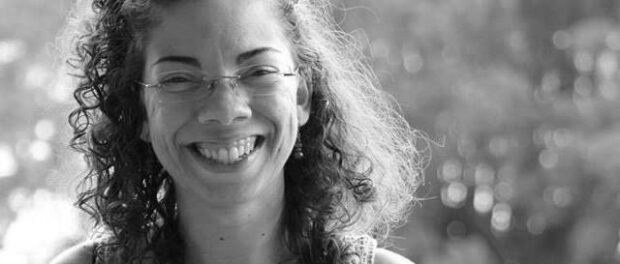
In Brazil, historically, academia is a space occupied only by the privileged: the rich our sliver of a middle class. We who are from the urban periphery and the favelas have only had access for a little over a decade thanks to affirmative action. And this was not out of the goodness of the government’s heart, but rather due to the historic struggle of black movements in our country.
The world of academia is by its very nature exclusive. We are not welcome there, and this is demonstrated every day in the way our people are treated. This space demands productivity, articles, the presentation of research projects, traveling, knowledge of other languages… it demands that we show up on time for classes, which are only offered during the day. There are copies and more copies of texts to make and read in less than a week, and books and more books are required all the time. No, they’re not interested in understanding that we have to split our time for studies with our telemarketing jobs, with our resistance efforts in the quest for the right to life in the favela, with our jobs as supermarket cashiers, with our nine-to-five jobs that consume us.
We’re also not welcome in the concepts discussed in class. The teaching method and references are oppressive. The arrangement of the chairs in the classrooms evidences this: it’s hierarchical. The literature is, for the most part, from European writers. They colonized Brazil, were oppressors and exploiters of popular culture, of my life. And what they “teach” in texts loaded with clichés about my reality does not represent me.
Academia perpetuates oppression and racism. It does not respect our culture. The orality that they so romanticize in the classroom is not permitted in the text formats of assignments. Why can’t I write the way I want to in an academic article? I’m used to a certain type of language that is valued in my culture: Northeastern, black, indigenous, from the favela. I speak in slang, and my references are to funk. At home, it’s Carolina Maria de Jesus, it’s Orosina Vieira, the first resident of Maré. It’s Ilda Felix, my grandmother. It’s Carmen Lúcia, my mother. It’s their knowledge that I want to fill my articles with, but I only want their knowledge, from them, because they were the ones who taught me and passed on their knowledge to so many others, who are not part of this space of resistance. Their knowledge was “interpreted” by others, and I cannot make use of that.
Academia needs to understand that the customs from the population that resists, for example, for over 100 years in the favelas of Rio, is knowledge that should be valued, studied in depth, and, above all, respected, but without employing any stereotypes. The favela must be the protagonist of its own story and its own discourse. Otherwise there will be no diversity, but rather the imposition of the customs that have oppressed us for centuries.
Those who have always occupied university spaces also do not accept us in their classrooms. They disqualify us, claiming that we are hateful, that we are angry. For every racist slur we respond to, they disqualify us, always taking advantage of class time to discuss the number of books they read over the weekend, or how they spent a month traveling across Europe with scholarship money they were granted because they had the time and passed the course in first place.
No, academia does not accept us, but we must increasingly occupy this space and demonstrate every day that we do indeed have our references, we do indeed have our way of speaking, of writing, of behaving—that real knowledge is that which we build on a daily basis, without, however, ignoring the wisdom from all the many books.
But this alone isn’t all I need. After all, I am part of a life or struggle for survival that is very real. Bullets from shootouts pass through countless bodies every day in my favela, in Maré. Power outages are another difficulty we have in the favela. Computers and the Internet are still very expensive. The lack of money to pay for bus fares is another challenge. The challenges are immense and our struggles are many, and we still have to fight to change this space.
We will change, but this is not and cannot be an individual struggle. Our diploma must serve as an example of the strength and struggle of a people that have resisted for over 500 years in this country alone. We will occupy this space. We will share our knowledge with those who haven’t been able to participate in it yet. This space must be ours, and it will be fully ours one day! We want there to be more professors who represent the people one day, and more students that represent the people!
Gizele Martins is a journalist and community communicator from the Maré favela complex.
